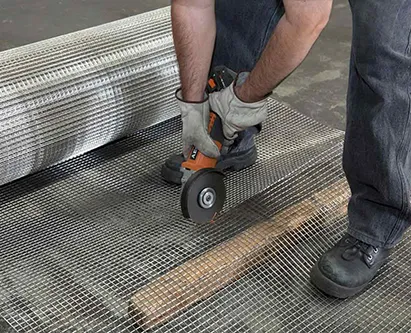Choosing the Ideal Fencing Solution for Effective and Sustainable Farming Practices
The Best Fence for Farming Choosing the Right Option
Fencing is an essential component of any farming operation. It serves multiple purposes, including protecting crops, containing livestock, and enhancing the overall aesthetic of the farm. However, with various fencing materials and designs available, choosing the best fence for your specific farming needs can be a daunting task. In this article, we will explore some of the best fencing options for farming, considering factors like durability, effectiveness, and cost.
1. Barbed Wire Fencing
Barbed wire is a classic choice for farmers looking to contain large animals such as cattle and horses. It consists of two or more strands of wire twisted together with barbs at intervals. Barbed wire is durable, cost-effective, and relatively easy to install. It is especially effective for keeping livestock contained and deterring predators. However, it may not be the best option for smaller animals or pets, as they can easily become injured on the sharp barbs.
2. Electric Fencing
Electric fencing is gaining popularity among modern farmers due to its effectiveness in containing livestock and deterring wildlife. This type of fencing uses electrical currents to create a barrier that is safe yet effective. Electric fences can be a versatile solution as they can be used temporarily for rotational grazing or permanently for established pastures. They also have the advantage of being less obtrusive than traditional fencing methods. However, they require a power source and regular maintenance to ensure they function correctly.
best fence for farming

Stock fencing, or woven wire fencing, is another excellent option for farming. It consists of vertical wire strands connected with horizontal strands to create a sturdy barrier. This type of fence is ideal for containing various types of livestock, from sheep to goats. The closely spaced wires prevent livestock from escaping and keep smaller animals out. Stock fencing is durable and can withstand harsh weather conditions, making it a long-lasting investment for farmers. However, installation can be more labor-intensive and may require specialized tools.
4. Wooden Fencing
Wooden fencing adds a rustic charm to any farm and can serve both functional and aesthetic purposes. Wooden fences can be constructed in various styles, such as post-and-rail or picket. While they can be attractive and provide a strong barrier for livestock, wooden fences require regular maintenance, including painting or staining, to prevent rot and decay. Depending on the type of wood used, initial costs can be higher than other fencing options. However, with proper care, wooden fences can last for many years.
5. Vinyl Fencing
Vinyl fencing is a modern alternative that offers durability and low maintenance. Unlike wood, vinyl does not rot, warp, or fade, making it an attractive long-term investment. It comes in various styles and colors, allowing farmers to choose a design that complements their property. However, while vinyl fencing is easier to maintain, it may not be as strong as metal fencing options and can be more expensive upfront.
Conclusion
Choosing the right fence for farming is crucial for protecting your property and livestock while ensuring efficient management of your farming operations. Factors such as the type of livestock, the purpose of the fence, budget constraints, and maintenance needs should guide your decision. Whether you opt for barbed wire, electric fencing, stock fencing, wooden, or vinyl options, ensuring that your fencing solution aligns with your specific requirements will help you create a secure and functional farm environment. Assess the pros and cons of each option, and consider consulting with local farming experts to make the most informed choice for your agricultural needs.
-
The Ultimate Guide to Premium Quality Field Fence Solutions
NewsAug.12,2025
-
The Essential Guide to Premium Square Wire Mesh Solutions
NewsAug.12,2025
-
The Essential Guide to Hexagonal Wire Netting Farm Fencing
NewsAug.12,2025
-
Premium Continuous Deck Rail Slab Bolster Solutions
NewsAug.12,2025
-
High-Performance Aluminum Tie Wire Reel for Construction Applications
NewsAug.12,2025
-
Crafted Premium Galvanized Hexagonal Gabion Wire Mesh Solutions
NewsAug.12,2025














